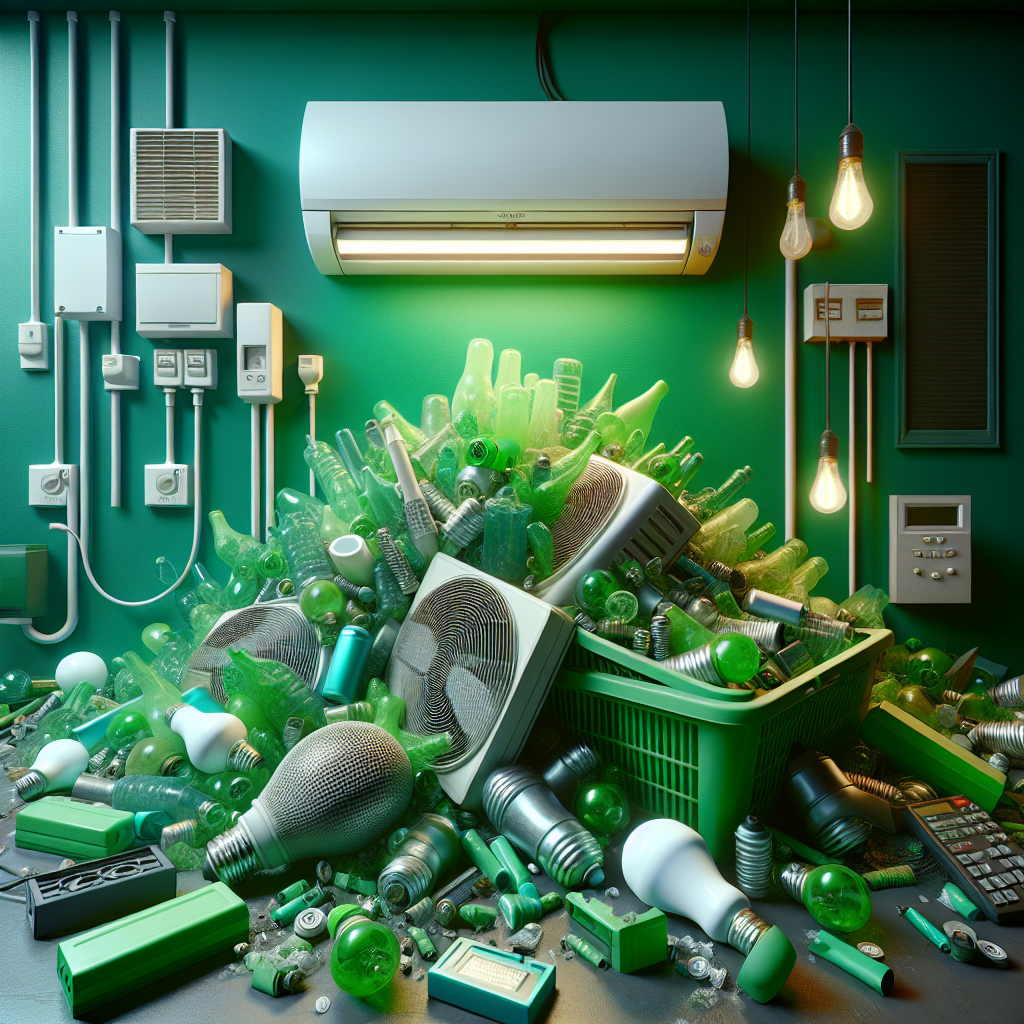Blog Ecobraz Eigre

"Batteries, air conditioning and lighting: the waste that many companies ignore"
The proper management of waste such as batteries, air conditioning equipment and lighting systems is essential for environmental compliance and safety. Federal legislation regulates the handling of these materials, requiring specific collection, storage, transportation and disposal practices to mitigate environmental and health risks.
Battery waste: risks and regulation
Batteries contain heavy metals and toxic substances that, if disposed of incorrectly, cause soil and water contamination. Law No. 12.305/2010 establishes the National Solid Waste Policy (PNRS), which determines the obligation to properly manage these materials, including reverse logistics systems. Management must follow ABNT NBR 10004 standards for waste classification and CONAMA Resolution 401/2008, which establishes criteria for safe disposal and storage. Temporary storage must be done in a protected and ventilated place, avoiding corrosion and leakage.
Air conditioning equipment: treatment and correct disposal
Equipment containing refrigerants must be treated in accordance with CONAMA Resolution 431/2011, which regulates the management of halogenated refrigerants. These compounds are harmful to the ozone layer and their management requires specific techniques for recovery or destruction, in accordance with Montreal Protocol regulations. Untreated disposal of this equipment is an environmental violation. In addition, the disposal of electronic materials and metal components must comply with the PNRS, with the use of recycling processes when available, and easy access to the collection of electronic waste. To schedule and correctly dispose of this waste, we recommend consulting specialized services such as electronic waste collection.
Lighting systems: environmental impact and technical standards
Components used in lighting systems contain materials such as mercury that require special attention. CONAMA Resolution 401/2008 also regulates the handling of this hazardous waste. Failure to comply with these regulations poses a risk of environmental contamination and can result in legal sanctions. Management includes safe collection, storage in suitable packaging and forwarding to licensed recyclers. The PNRS reinforces the importance of segregation at source and the adequacy of this flow in the waste chain. Specific training for the staff responsible is essential to ensure compliance and safety in the process.
Safe disposal of electronic media and devices
For devices that store digital data, such as hard disks, information security must be guaranteed during disposal. The destruction or sanitization process is standardized to prevent confidential data from being leaked. Specialized services facilitate the secure procedure, according to available technical guidelines. The use of recognized protocols involving safe disposal of hard drives and electronic media is recommended to mitigate legal and security risks.
Conclusion
The proper management of waste from batteries, air conditioning equipment and lighting systems is mandatory, provided for in current legislation and fundamental to mitigating environmental impacts and health risks. Adherence to technical standards and the use of specialized services ensure compliance, safety and social and environmental responsibility, reducing legal risks and promoting sustainability.

Deixe um comentário
O seu endereço de e-mail não será publicado. Campos obrigatórios são marcados com *